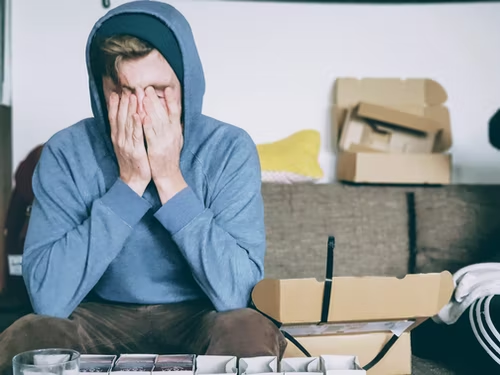9 Ways On How Physical Violence Affects The Mental Health
It can be said that physical violence holds a special place in terms of consequences for the victims. The past has depicted and continues to depict the dire effects that physical violence has on the victim's health, both mental and physical. So, here are the 9 ways how physical violence affects the mental health of the victim.
1.It can cause them trauma
Physical violence can cause trauma and affects the mental health of both children and adults. According to the World Health Organization (WHO), violence is a public health priority. It is an important risk factor for suicide, homicide, and unintentional death as well as for physical and mental health problems.
In addition to affecting the mental health of children, physical violence also has long-term consequences for their physical health. Children who experience violence can develop chronic medical conditions such as asthma or obesity. They may also experience chronic pain later in life or have trouble managing their emotions, resulting in increased stress on their bodies.
2. They experienced flashbacks and nightmares
A flashback is a memory of something traumatic that has occurred in the past. A flashback can occur when an individual is exposed to certain triggers, such as a certain smell or sound. For example, a person who was abused by their father may experience flashbacks if they walk into their father's study and smell his cologne.
A nightmare is a dream that causes one to wake up in the middle of the night with feelings of extreme fear or anxiety. Nightmares can occur for many reasons, including being upset about something that happened during the day or having an underlying mental health condition such as depression or post-traumatic stress disorder (PTSD).
3. It can cause depression
Depression can be caused by or associated with physical violence. It is often seen among people who have experienced physical violence in their lives. People who have been physically abused as children are more likely to suffer from depression as adults than those who were not abused as children.
This may be because victims of childhood abuse often feel powerless and helpless in their adult lives, which can trigger feelings of depression and anxiety.
Physical violence can also cause depression by disrupting the way your brain functions. Physical trauma can damage the frontal lobe of your brain, which plays an important role in regulating emotions. This damage can lead to changes in moods and feelings that make it difficult for you to cope with stressful situations or negative feelings like sadness or anger.
4. It can cause Anxiety
Anxiety is a way to describe how physical violence affects mental health. The relationship between physical and mental health is important to understand because it gives a deeper understanding of how abuse can affect someone's life. The connection between the two types of health is complex, but there are some ways to think about it.
The first issue is that any type of abuse can cause stress and anxiety. This kind of anxiety leads people to feel unsafe in their own homes or communities, which can cause them to isolate themselves from others. People who have been abused often have trouble trusting others or feeling safe around them.
Abusers also tend to use threats and intimidation as a way to control their victims, which can lead victims to feel afraid all the time. This fear can also make it difficult for victims to leave abusive relationships because they don't want anything bad happening while they're away from home (or wherever else they might be).
Physical violence also has an effect on mental health because it causes people who have been abused to develop post-traumatic stress disorder (PTSD).
6. It makes you feel numb
It can cause them to feel numb and disconnected from their emotions. When someone experiences physical violence, they often feel disconnected from their feelings. This can lead to feelings of numbness and a lack of empathy for others.
They may also have trouble processing their emotions and experiencing normal human emotions such as love or compassion. They may feel nothing but rage or anger at all times, which can make it difficult for them to relate with others who are not angry all the time.
Physical violence also affects how victims see themselves in relation to others. They may feel like they are less than human because they were hurt by someone else, or they may develop paranoid delusions where they believe everyone will hurt them if given the chance.
7. Substance Abuse
Substance abuse is a major factor in the perpetration of violence by men and women. Alcohol, drugs and other substances are used by people to deal with stress, anxiety and depression. These can lead to an increased risk of abuse of alcohol or illegal drugs as well as an increased risk of violent behavior.
Alcohol is a depressant that slows down brain function when consumed in large amounts. It can also cause loss of inhibitions and make it easier for someone to forget their inhibitions about what they are doing. In addition, it causes changes in moods, making some people more aggressive than they would normally be without alcohol consumption.
Drugs like marijuana can also have similar effects on the brain as alcohol does, but the effects are not nearly as strong since marijuana does not have nearly as much alcohol content in it compared to what is found in beer or wine for example. However, both of these are being used by the victim as a way of comforting themselves but instead of helping, they might harm the victim even more physically and mentally.
8. You lose your self-esteem
When people experience physical violence, they may start to feel like everything they do is wrong. This can lead them to lose self-esteem and confidence in themselves. This then leads to low self-confidence and increased self-doubt, which can lead to depression or anxiety disorders.
This is because the person who is abusing you will often tell you that they are better than you and make you feel like a bad person. They do this by calling you names, making fun of your appearance and telling you that no one else would ever want to be with you. This can make you feel worthless and unlovable.
You may also start feeling like no one else will love or care for you, which can lead to depression and anxiety. These feelings can cause many people to turn to drugs or alcohol in order to cope with their emotions, which leads us onto the next point
9. You start feeling scared all the time
Most people who have been in a physically violent relationship experience extreme fear and anxiety. You may feel like you're always on edge and ready for an attack, or that there's no way out of the violence. This can result in a variety of mental health issues, including depression, post-traumatic stress disorder (PTSD), anxiety disorders, substance abuse disorders and eating disorders.
You suddenly find yourself feeling afraid when you are alone, or especially when you are in public. You might not even know what it is that is making you feel this way, but it's a feeling that starts to stick around more and more.
Violence is a complicated subject. There are many causes of physical violence, and just as many ways to prevent it. On the list above we've presented some of the ways how it affects the mental health of those who suffer from it.
For more helpful and informative insights, visit here.





